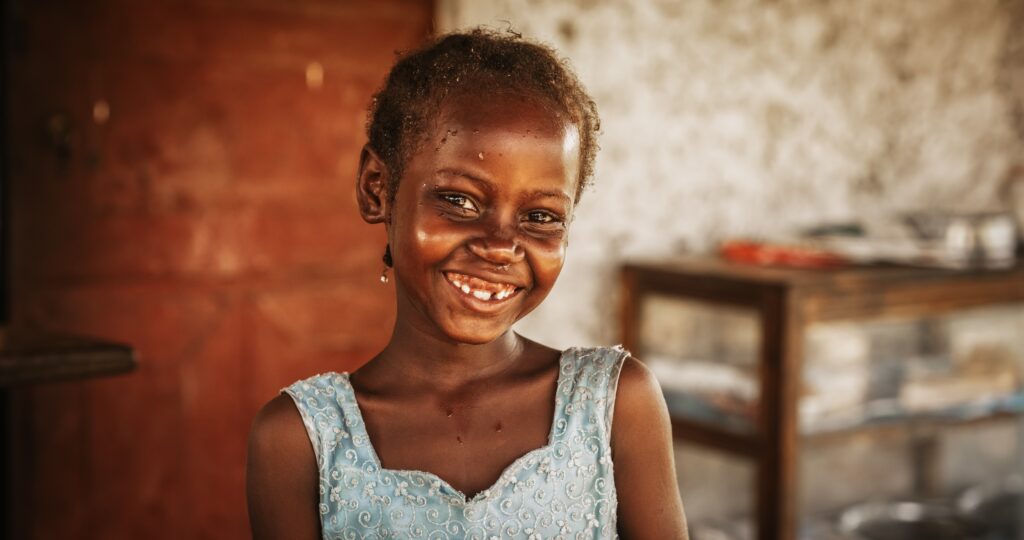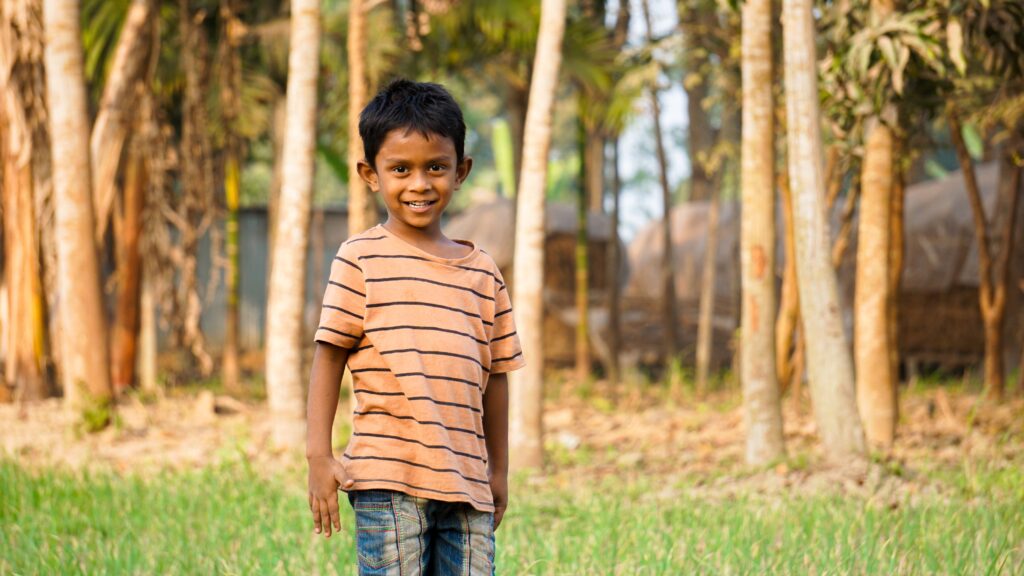Youth psychotherapies appear to be about twice as effective in low- and middle-income countries (LMICs) compared to high-income countries (Venturo-Conerly et al., 2023). However, disproportionately little research on youth psychotherapies has been conducted in LMICs; 90% of the world’s youth live in LMICs, but only 5% of randomized controlled trials (RCTs) of youth psychotherapies have been conducted in LMICs to date. Therefore, there is great need for more research on psychotherapies for youth in LMICs and for funding directed to LMIC-based investigators, clinicians, and organizations. We do not know why psychotherapies appear more effective in LMICs, but discovering why could help to identify ways of improving youth psychotherapies worldwide.
About 90% of children and adolescents (youth) in the world live in LMICs. Therefore, it is particularly important to provide effective mental health care to youth in LMICs (Weine et al., 2021). Psychotherapies such as cognitive behavioral therapy, exposure therapy, life-skills training, and more, are effective at reducing symptoms of mental illness and supporting mental health. Such youth psychotherapies have mostly (95%) been tested in high-income countries to date (Venturo-Conerly et al., 2023; Weisz et al., 2017); therefore, there is great need for research on youth psychotherapies in LMICs to help ensure the 90% of youth living in LMICs receive effective mental healthcare.

“There is great need for research on youth psychotherapies in LMICs to help ensure the 90% of youth living in LMICs receive effective mental healthcare.”
A recent meta-analysis (Venturo-Conerly et al., 2023) pooled data from 34 randomized controlled trials (RCTs) to understand the effectiveness of psychotherapies for children and adolescents in LMICs. Overall, these psychotherapies had a large effect size, though effect sizes varied considerably across studies. Relative to the effect size found in a meta-analysis (with highly similar inclusion criteria and methods) of child and adolescent psychotherapies (Weisz et al., 2017), in which over 95% of studies were conducted in high-income countries, this effect size for youth psychotherapies in LMICs was over twice as large.
Interestingly, this meta-analysis was not the first to find that psychotherapies are considerably more effective in LMICs relative to in high-income countries. Another meta-analysis of psychotherapies for adults with depression found the same (Cuijpers et al., 2018).
Importantly, the reason why psychotherapies are more effective in LMICs is not clear. One possibility with some support (Cuijpers et al., 2018; Venturo-Conerly et al., 2023) is that bias (e.g., sub-optimal handling of missing data or imperfect blinding) is present in some studies in LMICs, however, this explanation is not particularly satisfying because bias is also present in many studies conducted in high income countries. Another possibility is that, because fewer mental health professionals offer services in most LMICs, more youth in LMICs than in high-income countries have never received professional mental health treatment, making effects for their first treatment experience larger in LMICs. If this were the case, however, we might expect to see that low-income countries would show larger effects relative to middle-income countries, which they do not (Venturo-Conerly et al., 2023). There are many other factors that could potentially help explain the difference in effects, and very likely multiple factors contribute.

“This meta-analysis was not the first to find that psychotherapies are considerably more effective in LMICs relative to in high-income countries.”
In the future, it will be important to identify factors that help explain the greater effectiveness of youth psychotherapies in LMICs relative to high-income countries. Identifying these factors that contribute to effectiveness in LMICs could help reveal how to make youth psychotherapies more effective across both LMICs and high-income countries. Additionally, given that 90% of the world’s youth live in LMICs but only about 5% of trials to date have been conducted in LMICs, there is a clear need for more trials of psychotherapies in LMICs. To achieve this aim, more funding for, support of, and meaningful collaboration with investigators in LMICs will be necessary. I hope that, as a field, we can help close the gap between need and resource allocation in the coming years.
NB this blog has been peer-reviewed and is a reflection on a recently-published journal article.
Conflict of interest
Katherine Venturo-Conerly is the Co-Founder and Scientific Director of Shamiri Institute, a non-profit focused on providing mental health support for Kenyan youth.
About the author
Katherine Venturo-Conerly is a fourth-year doctoral student at the Harvard Laboratory for Youth Mental Health and the Co-Founder and Scientific Director of the Shamiri Institute, 501(c)3 non-profit dedicated to developing, testing, and disseminating scalable mental health interventions for youth in Kenya. Katherine’s professional aims are twofold: 1) to conduct applied, community-based research on psychotherapies for youth (i.e., children and adolescents) to improve quality and accessibility of youth clinical care, and 2) to deliver at scale evidence-based, yet flexible and individualized, clinical care in community settings to youth and their families. Much of her research involves studying the effectiveness of treatment components using multiple methods. She is currently funded by a National Institute of Mental Health National Research Service Award to study decision making about treatment elements in modular psychotherapies such as MATCH using multi-level models and statistical learning. She is also studying the effectiveness of individual treatment elements in the Shamiri Wellness Intervention in a randomized controlled trial, working to design novel interventions and delivery systems in Kenyan high schools, and studying the effects of a single treatment principle (practicing the opposite) using ecological momentary assessment. Finally, she has conducted several meta-analyses and systematic reviews to assess existing literature on youth psychotherapies
References
Primary resource
Venturo-Conerly, K. E., Eisenman, D., Wasil, A. R., Singla, D. R., & Weisz, J. R. (2023). Meta-analysis: the effectiveness of youth psychotherapy interventions in low-and middle-income countries. Journal of the American Academy of Child & Adolescent Psychiatry, 62(8), 859-873. https://doi.org/10.1016/j.jaac.2022.12.005
Other resources
Cuijpers, P., Karyotaki, E., Reijnders, M., Purgato, M., & Barbui, C. (2018). Psychotherapies for depression in low‐and middle‐income countries: A meta‐analysis. World Psychiatry, 17(1), 90-101. https://doi.org/10.1002/wps.20493
Weine, S., Horvath Marques, A., Singh, M., & Pringle, B. (2020). Global Child Mental Health Research: Time for the Children. Journal of the American Academy of Child and Adolescent Psychiatry, 59(11), 1208–1211. https://doi.org/10.1016/j.jaac.2020.06.015
Weisz, J. R., Kuppens, S., Ng, M. Y., Eckshtain, D., Ugueto, A. M., Vaughn-Coaxum, R., … & Fordwood, S. R. (2017). What five decades of research tells us about the effects of youth psychological therapy: A multilevel meta-analysis and implications for science and practice. American Psychologist, 72(2), 79. https://psycnet.apa.org/doi/10.1037/a0040360



Discussion
Hello!
I think it is true that in low and middle-income countries there is little research done on child/adolescent mental health. We need more research in our country, especially around school mental health. We have a lot of cases related to mental health in our schools, but not been researched properly. I agree with Kathrine’s ideas. I Look forward to the implementation of such.
Regards,